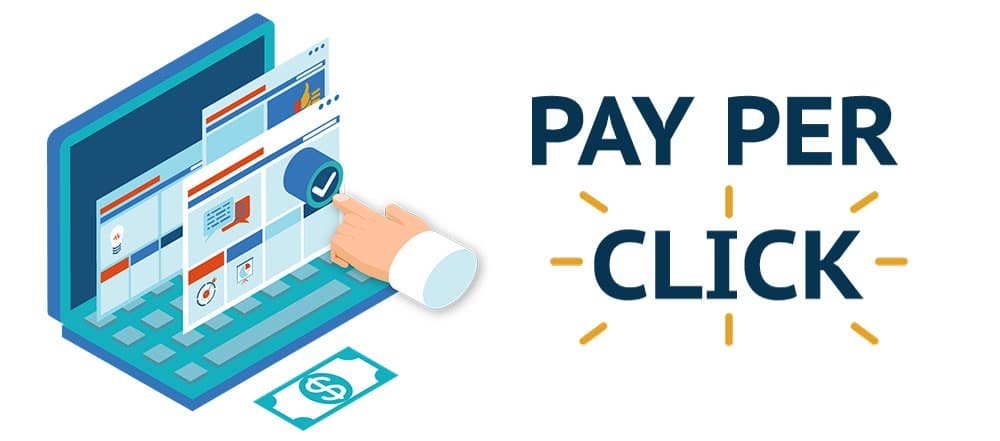
The Basics and Advance of Pay-Per-Click (PPC) Marketing That Every Marketer Should Know
PPC stands for pay-per-click, a model of internet marketing in which advertisers pay a fee each time one of their ads is clicked on. It is a way of buying visits to your site, rather than attempting to “earn” those visits organically.
Search engines like Google and Bing allow businesses and individuals to buy listings in their search results.
These ads appear alongside, and sometimes above search results. The search engine is then paid every time a user clicks on the sponsored ad.
Google AdWords is the most popular PPC advertising system on the internet. The AdWords platform enables businesses to create ads that appear on Google’s search engine. AdWords operates on a pay-per-click model, in which users bid on keywords and pay for each click on their advertisements.
These ad spots are sold in an auction. You bid the maximum amount you’re willing to pay for a click on your ad. Bid the most and you have a chance of ranking number one in these sponsored or paid results. There is “quality score” which can impact your ranking.
If someone clicks on your PPC listing, they arrive at your website or on a page you’ve selected, and you are charged an amount no more than what you bid. So, if you bid $1.50 maximum on the keyword ‘House’, and that’s the highest bid, you will show up first in line. If 100 people click on your PPC listing, then the search engine or PPC service will charge you a maximum of $150.00. Every time a search is started, Google searches through the cache of AdWords advertisers and chooses a set of winners to appear in the valuable ad space on its search results page.
Read – OMG! The Best Social Network Marketing Strategy Ever with Tools
The “winners” are chosen based on a combination of factors, including the quality and relevance of their keywords and ad campaigns, as well as the size of their keyword bids. More specifically, who gets to appear on the page is based on an advertiser’s Ad Rank, a metric calculated by multiplying two key factors – CPC Bid (the highest amount an advertiser is willing to spend) and Quality Score (a value that takes into account your click-through rate, relevance, and landing page quality).
This system allows winning advertisers to reach potential customers at a cost that fits their budget.
Google gets enormous amounts of traffic and delivers the most impressions and clicks to your ads.
The number of times your PPC ads appear depends on which keywords you choose. Researching and selecting the right keywords, organizing the keywords into a managed campaign and setting up PPC landing pages are the steps that go into building a PPC campaign.
Search engines will reward advertisers who create relevant, targeted pay-per-click campaigns by charging them less for ad clicks. If your ads and landing pages are useful and sufficient to users, Google charges you less per click, leading to higher profits for your business.
Several things will determine how successful your PPC advertising campaign will be.
Keyword Relevance – The first place you should start looking for keywords is the company website. Words that describe your company or product is where you want to start your list.
Landing Page Quality – Create landing pages with persuasive, relevant content and a clear call-to-action, tailored to specific search queries.
Quality Score – Quality Score is Google’s rating of the quality and relevance of your keywords, landing pages, and PPC campaigns. Advertisers with better Quality Scores get more ad clicks at lower costs.
PPC Keyword Research is extremely important. Your entire PPC campaign is built around keywords, and the most successful AdWords advertisers continuously grow and refine their PPC keyword list.
If you only do keyword research once, when you create your first campaign, you are probably missing out on hundreds of thousands of valuable, low-cost and highly relevant keywords that could be driving traffic to your site.
An effective PPC keyword list should be:
Relevant – You want to find targeted keywords that will lead to a higher PPC click-through rate. Keywords you bid on should be closely related to the items you sell.
Comprehensive – Your keyword research should include popular and frequently searched terms related to your business or product and long tail words. Long-tail keywords are words that are more specific and atypical, but account for a large percentage of search traffic.
Repetition – PPC is repetitive and you want to continuously refine and expand your keywords so that your effort is growing and changing.
Pay per click advertising is a great way to get visitors when you need traffic Pay per click is now a basic Internet marketing tool. Very few businesses can afford to ignore it. But you have to avoid the “more-clicks-is-better” mentality. Focus on conversions and return on investment, rather than clicks, and you can build a profitable campaign.
Read – Social Media Dangers for Teens: How to Deal with Them?
Pay Per Click Marketing is a good way of buying visits to your site if you’re having trouble getting traffic organically, or would like to see even more people visiting your business’ site.







